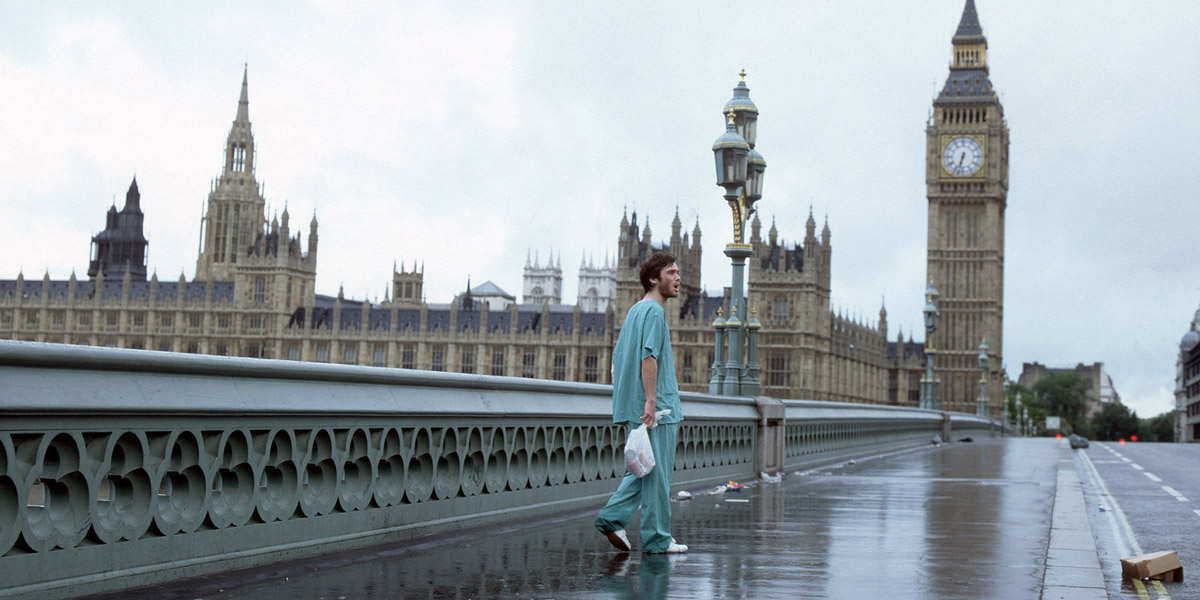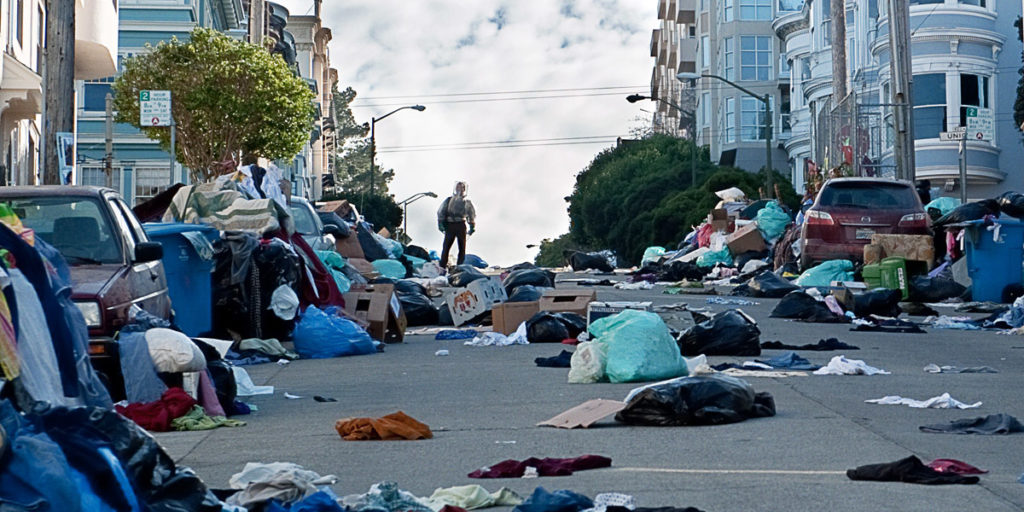“What the fuck is happening?”
During Hurricane Dorian, I watched as the roof blew off an apartment building a few blocks away and soared towards me like a thunderbird. With a crash, that black assemblage of tar paper, insulation, wood, and steel slapped down on a building about fifty feet away, molding around it like marzipan. Throughout that eternity of seconds I could not comprehend this sublime and uncanny display of force.
COVID-19 is disruptive as fuck but it shows that not all “emergencies” are the same. For most Canadians, this all started fairly abstractly, like a months-long radio adaptation of War of the Worlds. But by now, we’ve had weeks of practice reading the news, gauging the various, evolving responses, and weighing the models for predicting what may happen next. My colleague’s six year old son is already a native of this new world. He’s accepted this as the new normal. The rest of us are like raptors testing the fences, looking for a weakness that will help us escape. And yet, the truth is we’re still at the beginning of the impacts of COVID-19.
“COVID-19”
That name signifies more than just a virus. It gives a name to a unique global situation: a collection of intellectual practices and puzzles for experts, decision-makers, and the rest of us; new models for predicting the future; growing libraries of explainers, videos, expertly designed visualizations and charts, virus trackers, memes, and countless forms of other media; a network of information, people, non-human beings; a planetary effort as well as a planetary web of references. “COVID-19” names a new universal for human experience.
In this way, COVID-19 may remind us of SF scholar Darko Suvin’s famous definition of “science fiction”:
“…a literary genre whose necessary and sufficient conditions are the presence and interaction of estrangement and cognition, and whose main formal device is an imaginative framework alternative to the author’s empirical environment.”
In other words, a narrative about something new, whose unprecedented existence challenges our established forms of thinking.
That said, it has been noted that science fiction and SF movies might not always be the place to look for guidance. Predicting the future causes us to bump up against the non-scientific assumptions and values that ground our knowledge and stories. Science fiction movies often exploit those same assumptions for the sake of drama, not cooperation. As the “situation evolves”, different lessons appear and disappear faster than I can catalog them.
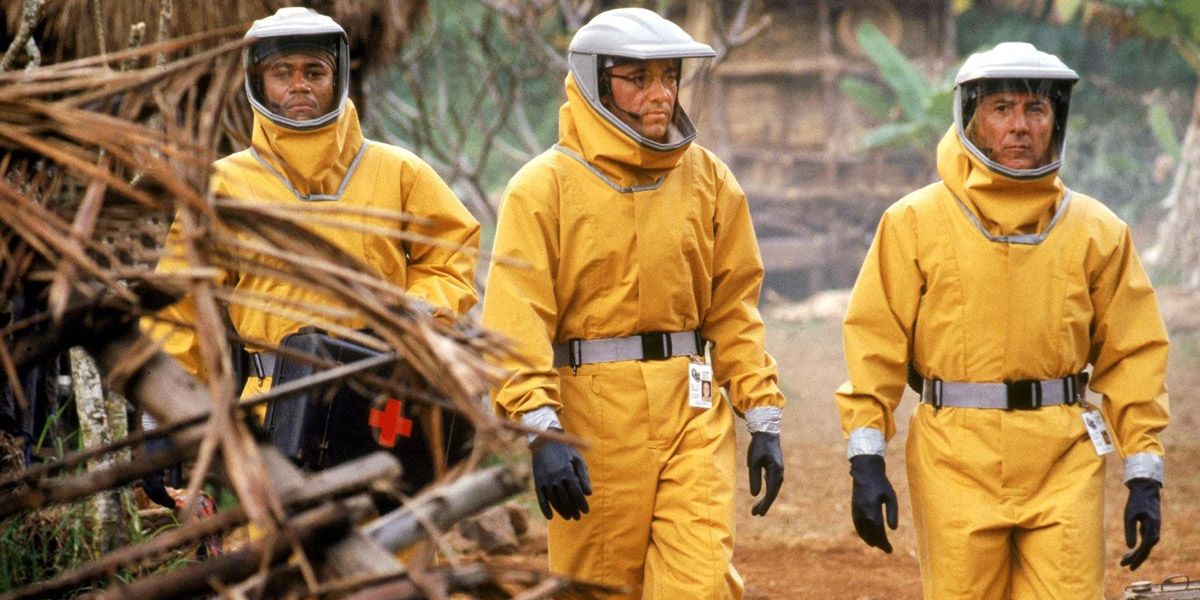
“Help me think faster”
Daniel Kahneman’s book Thinking, Fast and Slow argues that we have two kinds of thinking: immediate “from the gut” thinking and more deliberative/analytical thought. Each kind of thinking is required in different kinds of situations. If I’m going to catch a ball, recall a piece of trivia, or quickly respond to an attack, my brain can do that (for the most part) pretty well. But those characteristics are less helpful performing surgery, focusing my attention, or otherwise acting in an intentional and deliberate way. My brain does those things well too, but since deliberation is effort and more difficult, I tend to reframe situations so I can think “fast” when I should be thinking “slow.”
Kahneman recently admitted on the New Yorker Radio Hour that he also underestimated the threat of COVID-19. It exists in ways that confound our fast thinking, such as long pre-symptomatic periods and exponential growth rates.
COVID-19 makes us imagine, plan, and worry about the future constantly. It’s probably not shocking that folks immediately turn to science fiction for examples to help us “think fast” about novel coronavirus.
It’s true that “good” science fiction holds a mirror up to otherwise theoretical issues with enough distance and simplicity that we can see ourselves through a new lens. However, as entertainment, the conventions of screenwriting and the ideological assumptions of the creators impact the work as much as models of human behavior and risk management.
In short, science fiction movies, and movies in general, often tell us to do stupid things. Heroes subvert authority, follow their “guts,” take insane risks, and they succeed in unmasking how people meant to protect us were the villains all along. Heroes always think fast.
During COVID-19 we just want people to stay inside. Normally, you don’t have to ask, but now everyone’s a hero.
“It’s a disaster”
“Outbreak movies” are less a genre than a grouping of movies sharing the same inciting incident. Their diversity depends on how the disease fits into the story: is it an epidemic disaster, a just-in-time procedural drama, or a pretext for new societal order.
A pandemic allows creators to change or remove from society whole groups or classes to highlight a certain theme. For instance, in Children of Men (2006), we see a world impacted by two decades of infertility. This allows us to explore the fragility of hope and impacts of hopelessness on humanity as a whole.
Movies aren’t meant to be textbooks, but in times of crisis we lean on our nearest metaphors, and most of those come from movies. Many outbreak films, like The Crazies, Outbreak, or even Dreamcatcher, are less about exploring the multilateral institutional responses to an outbreak and more provoking our fears and anxieties about authority. How often have we watched scenes of the army in Hazmat suits gathering sick civilians into trucks or dropping bombs on plagued towns? In situations where we need to rely on authority to organize a collective response, COVID-19 is teaching us that good governance is key.
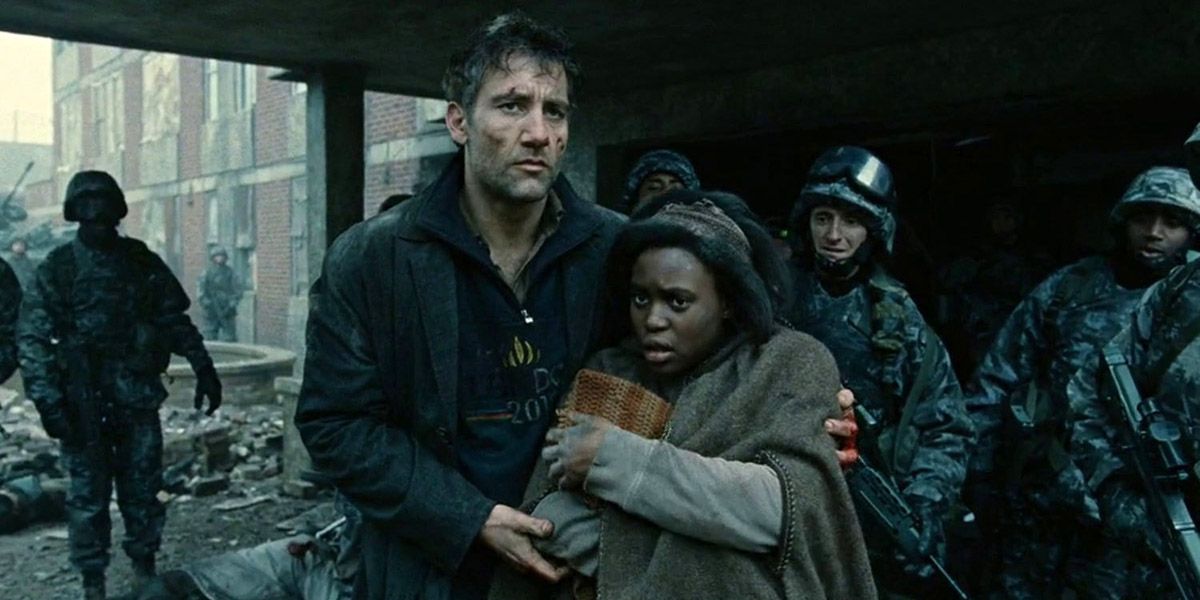
“Risk”
In risk planning, one is taught to worship the “precautionary principle,” which broadly advises being safe rather than sorry, even when you don’t have all the evidence. In science fiction movies, the precautionary principle is always disregarded by the bad guys. In reality, it’s more complex.
Any project or action where there is potential “risk” initiates a complex network of negotiations to determine what counts as a risk and how it would be “mitigated.” As a result, the precautionary principle is endorsed in various “hard” and “soft” forms by organizations, depending on how your interests relate to the activity (i.e. environmental assessments for resource projects).
The seeming improbability of a scenario is the siren’s call to decision-makers to downplay and soften the precautionary principle. At the same time, when the precautionary principle is successfully used, in hindsight, it looks like an overreaction. You usually don’t find out what you stopped and how bad it could have been. That means that if a society does comparatively well during an actual crisis various interests and forces will emerge to loosen restrictions. We are learning it can take nerve to be cowardly.
To my mind, one of the best disaster mitigation films is the 2016 Japanese Shin Godzilla. I’m sure you’ll find time to watch it.
COVID-19 as Metaphor
COVID-19 has quickly become a stand-in for other scenarios. Major earthquakes, floods, and fires almost always feel abstract when your ass isn’t wet or burning. COVID-19 is an insistent presence affecting all systems.
Our myth-making minds and our primate brains never stop looking for patterns in the fray. When life goes on lockdown because of a planetary event and all our focus all lands on one point, for that strange duration of time, humanity’s myth-making minds combine.
Humankind’s planetary mind takes billions of tiny bits out of a meaty new metaphor. The experience and data we gather from the novel coronavirus outbreak quickly become an increasingly nuanced scenario for thinking of other disasters or massive impact events, from bioterrorism threats to climate change mitigation. Humanity is learning many lessons from one exercise.
Our mythic minds also pose challenges. The need to find heros and blame enemies is palpable. Even now, as we get used to this, our ape brains are looking for ways out of the cage: to dismiss, downplay, and exempt ourselves from this reality. As Nietzsche taught us, we desperately invent other worlds where we belong, whether it’s heaven or utopia, because the one we’re in seems too full of hardship. The Ancient Greeks had always hoped that suffering leads to wisdom. We’ll see.
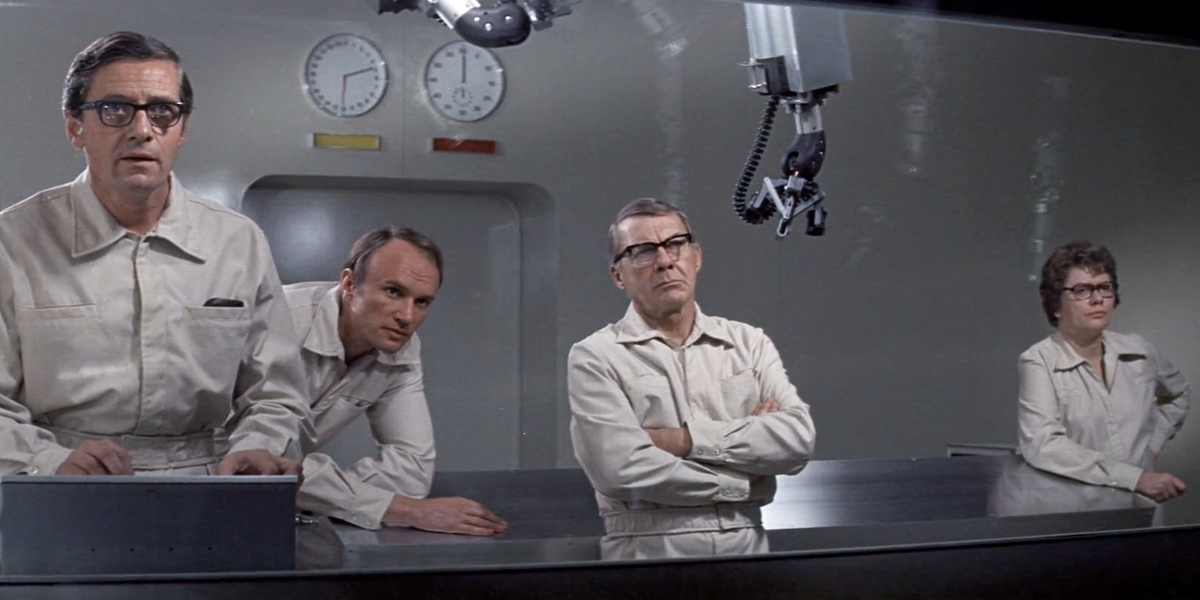
“Science Fiction” and novel coronavirus
Annalee Newitz and Charlie Jane Anders explore the role of pandemics in science fiction comprehensively in an Our Opinions are Correct episode called “Science Fiction Didn’t Prepare Us for the Pandemic.” They highlight in particular the use of disease to create political allegories in science fiction. A pandemic lets us see what society looks like without a particular group of people or human capacity.
Alicia Elliot wrote a great piece on the lessons we can learn from post-apocalyptic novels, which she concludes by noting: “Ultimately, the beating heart of all post-apocalyptic art is hope: hope for the future, hope that we can change, hope that care and compassion for one another will prevail even in the most dire of circumstances.”
Hope can and may be in short supply. In science fiction movies, the US President often provides that hope or signifies the enemy of hope. Bill Pullman’s President Thomas J. Whitmore in Independence Day is a veteran; a good man, ready to lay down his life to save his country and humanity. During his famous final battle speech, he says:
“We can’t be consumed by our petty differences anymore. We will be united in our common interests.”
The message is a cliche, clear but misleading. Abandon politics and let our shared humanity unit us against the threat, the other, the unknown. But what if a shared sense of humanity is itself a political concept?
COVID-19 as Social Science Fiction
In February, the actual US President was compared to the Mayor from Jaws, who knowingly kept the beaches open for the long weekend. We often see real politicians prioritize economic stability over health and safety.
Social science fiction exaggerates specific characteristics of a society to explore the limitations and potential impacts of those attributes. With COVID-19, each nation has become a science fiction version of itself, but none so much as the US.
As a movie, reality lacks credulity. There is as of yet no US federal response, which is unrealistic screenwriting. States and the federal government compete with each other and the world for medical resources. As I write this now, the US President has tried to direct 3M to stop exporting essential medical equipment to Canada (as well as Mexico and Latin America). Escalating tensions further, the US has been intercepting medical equipment bound to Canada, Germany, and other “allies.” The President accepts no responsibility for flaws in the US response and to shift culpability, he’s started a campaign against the World Health Organization and China, arguing the crisis is all their fault.
Against his own country, he’s mobilizing the communication tactics of tyrants: restricting oversight of his actions, working to blame foreigners, lowering the benchmark for success, attempting to undermine the cumulative knowledge from the rest of the world, and suppressing the use of best practices. This science fiction America is a disaster zone and the implications are global. It’s all a little on the nose.
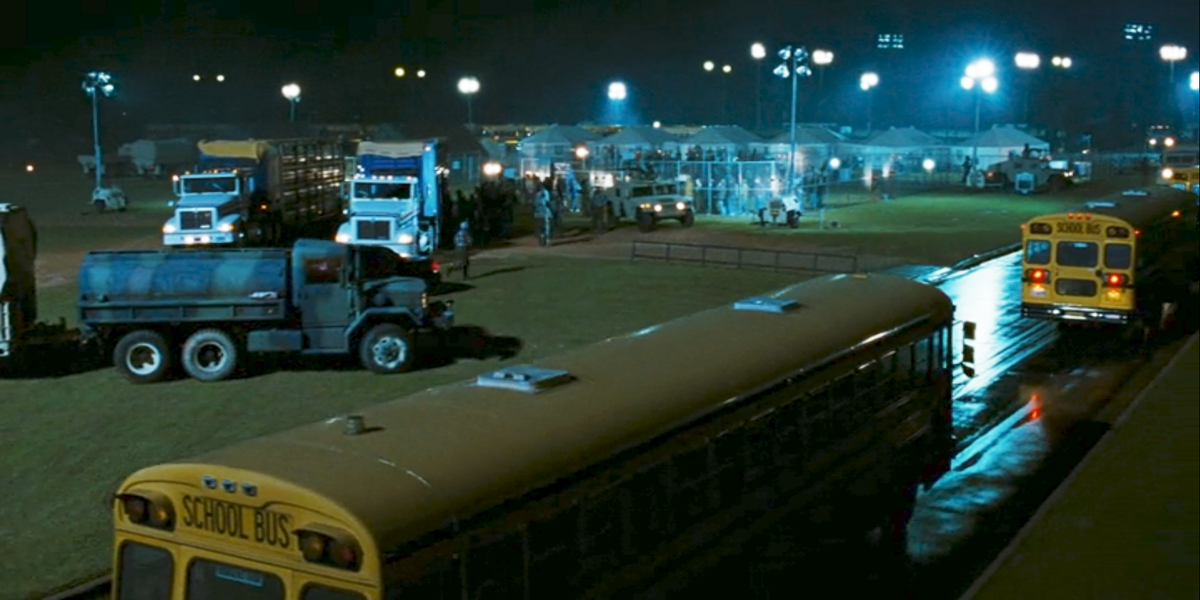
COVID-19 as Economic Science Fiction
Watching on our screens, reality is spoon-feeding us lessons.
We fetishize freedom and our purchasing power but not always cooperation or even community. The ubiquity and necessity of the economy incentivizes us to negotiate against ourselves and our collective health.
Early on, Umair Haque wrote a compelling piece called Did You Really Think Capitalism Was Going to Save You From a Pandemic?
Pandemics strip away a lot of bullshit. It’s easier than ever to see that the fundamentals of capitalism don’t place an inherent value on human life. As Haque highlights:
“All that’s what Marx called exploitation and immiseration. Exploitation — you have to work for things that should be basic rights. Immiseration: society has more than enough to provide all these things for you, but for some reason that you can’t quite fathom, nobody much has them. The reason is the system, the ideology, the belief. Nobody has intrinsic or inherent worth. The only point of all human existence, endeavour, thought, action is one-dimensional: making more profit.”
In the “COVID-19 movie” we watch how capitalism suddenly fails to meaningfully direct collective human action or protect human life during a major disruption. They flock to the government. Major market forces need “assistance” like anyone else, but demand it more forcefully than any individual citizen. We’re essential.
Meanwhile, all those cries to reduce government and government spending disappeared. So have the calls for privatized health care. Everyone magically becomes a socialist in times of crisis.
COVID-19 as conspiracy thriller
“Who is responsible?”
The lesson of the conspiracy thriller is that there’s always someone out to get you, either because of revenge, gain, or ideology. In this movie, the ideology is individualistic. The “mad man” is the only sane one. Humans are by nature violent, deceitful, and self-interested. People are always going to take advantage so it’s the strong over the weak. Institutions are to be destroyed not relied upon. Hoard toilet paper, medicine, and water.
Conspiracy narratives give the world meaning by presenting a clean, if bleak, view of human nature. Most importantly, conspiracy thrillers assure us that someone is actually controlling the world around us. If we can unmask the conspirators maybe we can control that power for ourselves. In the 1996 movie The Arrival (not the 2016 film), Charlie Sheen is able to unmask an alien invasion conspiracy by broadcasting a recorded admission on television. “Light is the best disinfectant.” Simpler times.
Was COVID-19 designed in a lab? Was it released by mistake? Did China under-represent their numbers? There are lots of questions about COVID-19, but the world is awash in misinformation, especially if you “don’t trust the government.” The way one frames a COVID question signals a lot to those around them. A friend told me: “Treat Facebook like it has coronavirus.”
As we get infected we don’t always know if we’re carriers. Like COVID-19, a lot of misinformation can be spread around before someone realises we’re sick. And if someone tells us we’re sick, well that just proves the conspiracy.
Maybe you’re the one who’s sick!
Maybe you insist on calling it “Wuhan virus” or “China virus” because it makes you feel free.
“I’m bathed in Jesus’ blood.”
On American television I see Evangelicals in cars driving to church. They’ll spread the virus around their communities, unafraid, because they’re protected by Jesus’ blood. The government here told people not to go to church. We’re communists.
COVID has us speaking new sentences. It’s what Canadian philosopher of science Ian Hacking calls an “organizing concept.” COVID takes other structures of meaning and rearranges them around itself. Everything is about COVID.
“How’s it going,” someone asked me from six feet away. They were dropping off an office chair from my wife’s work.
I shrug. Who the fuck knows? “How do you tell?”
We laugh. He takes his hands off the chair and backs away.
“You see the models are being released?” I placed my bare hand on the chair, in a place he didn’t touch.
“Yeah,” he said. “Looks like this could last a while.”
“Yeah…” I sigh. “Well, we don’t want to get a ticket.”
“Later.”
“Later.”
We’re still figuring out what this and later mean.
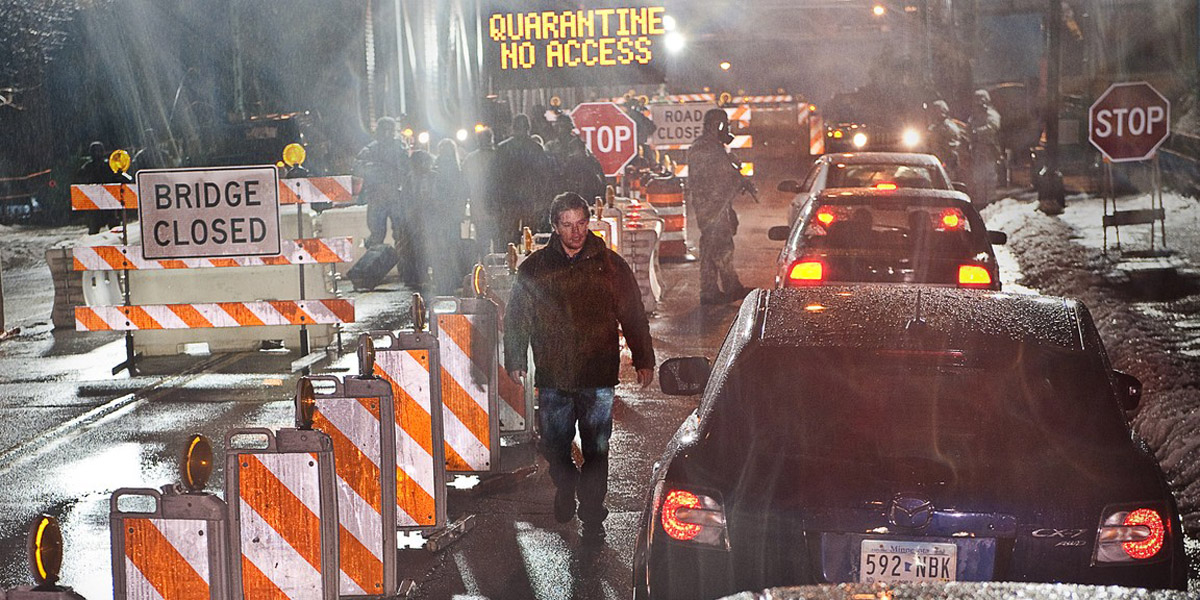
Failures of Nerve
There’s an Arthur C. Clarke essay that is so often cited it’s become a cliche, especially when something fucks up.
“Hazards of Prophecy: The Failure of Imagination” (1962) is a product of mid-20th Century techno-optimism. Clarke is interested in why the art of predicting (or Futurism) fails. What keeps us from seeing the “next step” of technological development? Most of us can be forgiven for our “failures of imagination” when we don’t predict the next step in theoretical physics. Even the most prominent Futurists, like Clarke himself, fail to predict the future as it will appear.
It’s the “failure of nerve” described by Clarke that applies to some of the responses to COVID-19. Clarke calls the US’s defeat in the space race “the greatest failure of nerve in all history.” In the deep past of the cold war, both the US and USSR wanted nuclear bombs on long-range rockets. The problem was that the bombs were too big and heavy. With all the technical knowledge of the time, each side made a choice: The US spent a lot of money on a lighter bomb and the USSR spent money on big ass rockets. When it came time to race to space, the US had an expensive bomb but obsolete rocket technology. The USSR had cheap bombs and massive advanced rockets, so they won.
Clarke concludes: “Anything that is theoretically possible will be achieved in practice, no matter what the technical difficulties, if it is desired greatly enough.”
Life during COVID-19 makes us wonder if we have the nerve for a hyper-connected world where we can all get sick and sometimes have to hit the pause button.
Like the US and USSR, we have a wealth of knowledge and expertise going into COVID-19. But is there the nerve to make choices, or to do what that knowledge and expertise suggests, especially when there are so many pressures telling us to hold back and keep everything “normal”?
A lot of those same pressures impact decisions during any crisis, but the pivot point where decision-makers look for balance is between health/safety and the economy. In the coming weeks and months, as this progresses, we’ll see more calls like those of the US President to get things “back to normal.” But this isn’t normal, or at least, it’s not the old normal.
Also, what of the dying industries that need assistance? Should “traditional sectors” get resurrected, or should we invest in the future? Flourishing in a new future takes nerve. Running back to the past doesn’t. At the same time, what a “good future” looks like puts us straight back into political ideology, the culture wars begin again, and the outbreak is still just starting.
